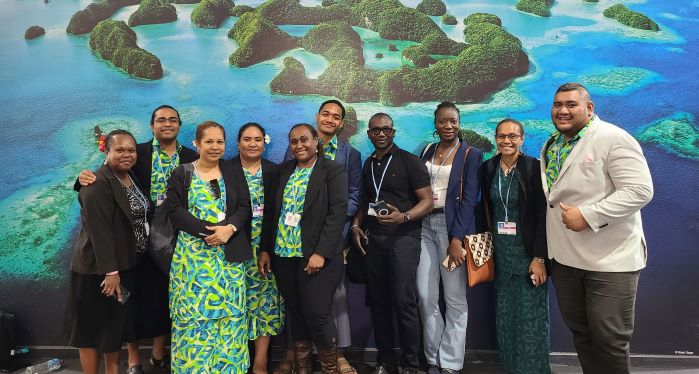Related News

“I would like to see countries become more effective and not just recommend more discussions, but rather more actions from their side. Whether it is through their commitments to reduce their carbon emissions or commitment and action to pump more funding assistance into mitigation and adaptation activities and programmes.”
These were the sentiments shared by The University of the South Pacific Postgraduate student, Moe Saitala Paulo who is representing Tuvalu at COP27 this week.
Ms Paulo said, “I grew up in Tuvalu where everywhere you go, you are surrounded by the beach and sea, but this beautiful life is fast becoming our doom as the ocean continues to encroach our shores a little more each year”.
She added that talking to her people about the importance of such meetings like COP was difficult as the challenge was showing how they would convert corporate negotiation processes to the grassroots level.
“I think the simplest way to explain it to my people is just to say that COP and its processes is a platform where we can raise these kinds of issues, and get technical and financial assistance, as well as an opportunity for capacity building within government sectors, NGOs as well as individuals.”
While these negotiations are taking place, Ms Paulo also acknowledged the work that continued at home to help address issues around climate change.
“We have our traditional knowledge on what we can do to help ourselves mitigate and adapt to the rising sea level, however, our traditional knowledge is not as effective as they were back in the day,” she said.
Ms Paulo said that during the two-week meeting at COP27, her focus was to create more conversations on the need to have as many people actively participating in the COP negotiations and for her to be there representing not just her people, but the Pacific Region.
Ms Paulo is one of four students attending the 27th Conference of Parties who have been funded by the European Union Intra-ACP GCCA+ Pacific Adaptation to Climate Change and Resilience Building (PACRES) programme at USP.